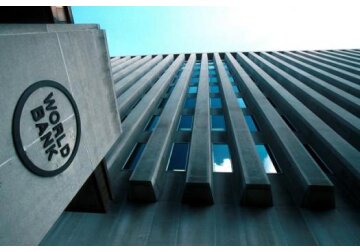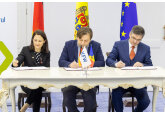
The World Bank will allocate a $40 million loan to Moldova for the Modernization and Improvement of Rehabilitation Services Project.
The decision on this loan was approved by the World Bank's Board of Executive Directors. The loan is aimed at supporting Moldova's efforts to reform health services, help preserve human capital and provide citizens with the opportunity to benefit from international experience in the management of non-communicable diseases (NCDs). According to the WB report, Moldova has one of the highest rates of premature deaths from non-communicable diseases, mainly due to cardiovascular diseases, which caused 37% of deaths under the age of 70 in 2019.The World Health Organization estimates that in 2022, about 1.6 million Moldovan citizens will suffer from at least one disease requiring rehabilitation services. As a consequence, there is a lot that can be done to prevent and control NCDs, from ensuring patients have access to medicines for high blood pressure, supporting them to live healthier lifestyles, to accessing emergency care and rehabilitation services so they can recover faster. "Through a combination of investments in infrastructure and preventive interventions in primary health care facilities, this cooperation between the Moldovan government and the World Bank aims to ensure that fewer citizens are affected by non-communicable diseases," said Inguna Dobraia, head of the WB office in Moldova. According to her, it will also ease the financial burden of patients who need emergency care and rehabilitation as a result of serious health problems. A key element of the project is to ensure timely treatment of strokes and heart attacks in the critical first hours after an attack, and to enable patients to later access rehabilitation services that will enable them to return to work and family life. In addition, the project will support critical interventions in primary care and at the population level to raise awareness of non-communicable diseases and prevent the likelihood of catastrophic events. The project will consolidate and implement the government's new vision for rehabilitation services and support the regionalization of care provided. Moldova's plans to improve stroke, cardiovascular care, and rehabilitation services for vulnerable categories will improve human capital and ensure that citizens and families across the country can receive high quality care. This will also be achieved by strengthening digital services so that patients in hard-to-reach areas can receive medical care without having to travel long distances. Since Moldova joined the World Bank in 1992, more than $2.1 billion has been committed to more than 70 operations in the country. Currently, the World Bank's portfolio in RM includes 11 active projects with a total value of $602.9 million. Areas of support include regulatory reform and business development, modernization of public services, tax administration, land registration, education, roads, health and social sectors, including emergency response to the COVID-19 pandemic, agriculture, water and sanitation, and energy. // 06.04.2024 – InfoMarket







